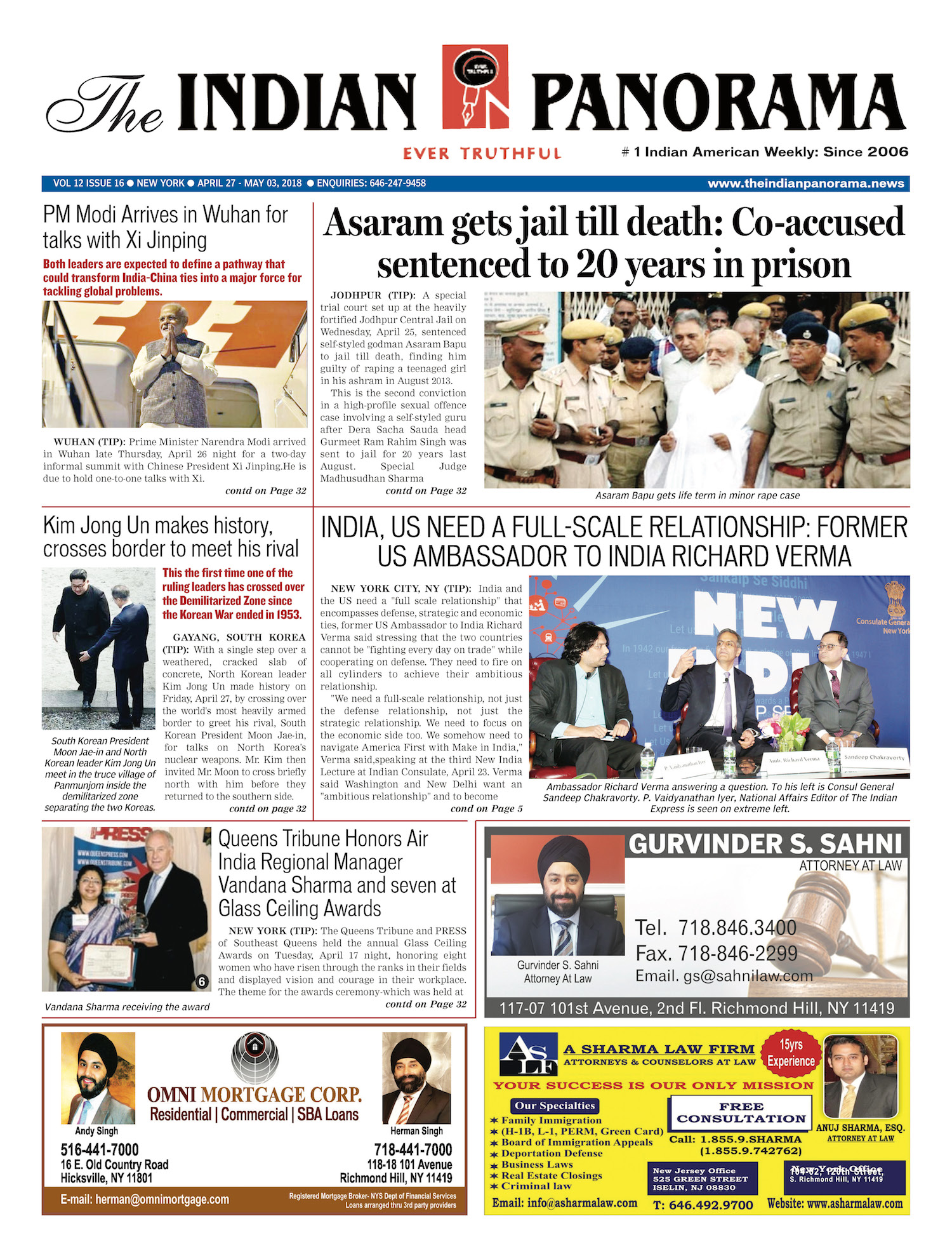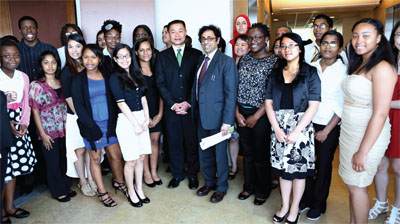
“Hysteria and groupthink prevail over professionalism in covering non-western countries”, says the author.
The observation that wealth, power and influence are shifting from the West to some key emerging actors among the rest has become a staple of international analysis. Relative decline in US global dominance will inevitably lead to a retreat of the American media footprint around the world as well and translate into a corresponding erosion of US soft power.
This trend will accelerate if outsiders lose faith in the professional integrity of US media. An important explanation for the surprisingly rapid inroads of Al Jazeera was dissatisfaction with biased coverage of Middle East news by oncedominant western media. The vulnerability of US media to manipulation of facts, evidence and opinion was vividly shown during the 2003 Iraq war.
Journalists failed to challenge the Bush administration’s inflated threat assessment based on manipulated evidence, cherry-picked intelligence and flawed analysis. Former Australian diplomat Alison Broinowski notes: “Of Rupert Murdoch’s 174 newspapers worldwide, not one editorially opposed the war; and, once the invasion began, many of their commentaries became hysterically supportive.”
Mainstream US media also collaborated with the Orwellian redefinition of torture. In the seven decades before 2002, the Los Angeles Times, New York Times, USA Today and Wall Street Journal described waterboarding as torture between 81% and 96% of the times. After 2002, when the US itself began to practice waterboarding, the papers called it torture in under 5% of cases. A more recent example is Iran.

After a month in the US, Rami Khouri wrote: “Any impartial assessment of the professional conduct of most American media outlets in covering the Iran situation would find it deeply flawed and highly opinionated to the point where I would say that mainstream media coverage of Iran in the US is professionally criminal.” To this litany can now be added the coverage and analysis of the ongoing India-US diplomatic row. Multiple layers of complexity and nuance are reduced to India wrong, America right.
It is not too hard to connect the dots and detect the structural bias against Devyani Khobragade in the following equation. The maid worked for Khobragade in New York, her husband for a US diplomat in New Delhi. The latter’s and his wife’s antipathy to Indian conditions was posted on social media. A trafficking visa is the easiest route to permanent entry into the US but requires criminal charges being filed and a willingness by the employee to testify against the employer.
A gullible advocacy NGO and a grandstanding attorney accepted the maid’s testimony without due diligence that fit their predetermined narrative and agenda. The whole chain could of course be false. But that requires independent and impartial investigation. The US media accepted the maid’s narrative and prosecution case seemingly at face value and strongly applauded the diplomat’s arrest for committing crimes against US visa and labor laws, on the basis of two American self-sustaining myths: egalitarianism and rule of law.
But the big picture reality is that in effect they endorsed the role of the US as a global bully that imposes rank double standards, compelling foreign diplomats to US legal jurisdiction but using all its economic and diplomatic muscle to keep its officials beyond the reach of foreign legal jurisdictions. Editorials and op-eds in the New York Times, Washington Post, Guardian, Financial Times and Australian repeatedly recalled previous Indian diplomats caught in similar troubles, but stayed silent on more heinous crimes committed by US officials misbehaving abroad, from accidental deaths in Kenya (2013) to murders in Pakistan (2011).
In the electronic media, BBC and CNN showed better balance. They also neglected to mention that the case, involving a contract signed in India between two Indian citizens, was already before India’s courts. By failing to mention it, they saw no need to explain and justify why the US inserted itself into the middle of the case and privileged its own over India’s legal jurisdiction. Providing a justification might have been right or wrong; not noting the facts was deceitful. Similarly, in an intriguing outbreak of groupthink, they kept mentioning the recall of ID cards for US officials in India as an example of petty and vindictive overreaction.
India had unilaterally issued diplomatic ID cards to all US embassy and consular officials. After the shabby treatment of its consular officer, it recalled all diplomatic ID cards and reissued consular ID cards. The second part was simply ignored as just another inconvenient fact that might contradict the self-righteous narrative. Outraged opinion writers pointedly noted how security barriers had been removed from around the US embassy in Delhi, but neglected to point out they were removed from public land only for causing great inconvenience to Delhi’s citizens and some adjoining foreign embassies.
India substantially increased the police presence around the embassy to ensure there was no net reduction in the level of security coverage. All this information is publicly available. Because “few governments in the world have the geopolitical heft that India has,” says Kishore Mahbubani from Singapore, “virtually every other government in the world was quietly cheering on the Indian government as it insisted on total reciprocity in the treatment of Indian and American officials”. You’d never know this from US media. Which begs the question: Were they lazy, incompetent or deliberately dishonest?
The whole chain could of course be false. But that requires independent and impartial investigation. The US media accepted the maid’s narrative and prosecution case seemingly at face value and strongly applauded the diplomat’s arrest for committing crimes against US visa and labor laws, on the basis of two American self-sustaining myths: egalitarianism and rule of law.





Be the first to comment